News
Mintel: yoghurt and cheese winning in China
22 May 2018While the overall dairy market in China is growing stably, the various categories are experiencing differing performance, according to new research from Mintel which reveals that yoghurt and cheese are the market’s winning categories.

While the overall dairy market in China is growing stably, the various categories are experiencing differing performance, according to new research from Mintel which reveals that yoghurt and cheese are the market’s winning categories in recent years with yoghurt maintaining an annual retail sales growth of over 20% since 2014. Meanwhile, the cheese category has seen a growth rate of 15-25% from 2015-17. Looking ahead, Mintel forecasts the dairy market to grow at a 6.6% CAGR (compound annual growth rate) in value, to reach RMB 349.7 billion in 2022.
Despite consistent sales growth for yoghurt and cheese, Mintel Market Sizes data shows that annual per capita volume consumption for major dairy products remains low compared to other countries. For example, per capita volume milk consumption in China is 14.3 litres, compared to 36.8 litres in Japan and 51.7 litres in the US; per person consumption of yoghurt in China is 3.43 kg, 4.92 kg in the US and 9.66 kg in Japan. Finally, the Chinese consume a mere 0.02 kg of cheese per person, while the Japanese take in 1.46 kg per person and, in the US, an impressive 6.89 kg per person.Summer Chen, senior food and drink analyst at Mintel, said,“Dairy consumption in China is still low when compared to Japan, where consumers share a similar dietary tradition to China. Mintel research indicates that China’s dairy market growth will be driven by increased consumption, resulting from the expansion of consumption occasion, value increase due to the rising price of raw milk, and consumers trading up to more premium options. When we look specifically at the yoghurt market, thanks to the recent craze over ambient yoghurt, the category is now leading not only in China’s dairy market, but among all food and drink products.”When it comes to dairy products, health-related factors are the main areas consumers are willing to pay more for. Among the four surveyed dairy products (including milk, yoghurt, butter and cheese), milk and yoghurt are perceived by consumers to be healthier and more nutritious (51% and 48% respectively), helping to improve immunity (49% and 44% respectively), and also good for kids (51% and 49% respectively) and the elderly (46% and 37% respectively).In addition, milk is more closely related with being high in protein (47%), and yoghurt with being easy to digest (60%). Butter is less likely to be associated with the same benefits, rather with issues such as being high in calories (50%), fat (45%) and cholesterol (34%). Cheese is somewhere in between, associated with benefits such as being high in protein (38%) and nutritious (37%), as well as being high in calories (43%) and fat (41%).Both plus claims, i.e. with additional nutrients (47%) and other healthy food as ingredients (44%), and minus claims, i.e. low fat or fat free (47%) and no-additives (45%), are critical improvements consumers are most willing to pay more for. Products designed for a special group of people (38%), such as those who are getting fit, is also among the top features consumers are willing to pay a premium for.By comparison, packaging- and taste-related factors—such as convenient packaging (29%) and limited seasonal flavours (22%)—are secondary factors for consumers considering buying premium options.“As consumers gradually become more aware of their dairy intake, both in quantity and quality, our research shows that plus and minus health claims are seen as worthy of paying extra for by urban Chinese consumers,” Chen added.In general, urban Chinese consumers prefer dairy products from big (65%) and nationwide (59%) dairy brands. While their attitudes towards local milk sources are pretty divided—44% believe they are reliable, while 36% believe local milk sources are not reliable. Nevertheless, more consumers prefer imported dairy products (43%) than domestic ones (34%). Even among those who trust local milk sources, 32% prefer imported dairy products.“When looking at the battle between domestic and imported dairy products, it seems that while urban Chinese consumers are regaining confidence in domestic milk sources and products, they still prefer imported options. To appeal more to consumers, domestic brands need to strengthen their offering in other areas, like positioning with a premium brand image, showcasing additional health benefits, and spotlighting innovative flavours in order to compete with imported brands,” Chen concluded.Related news
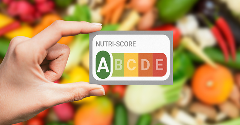
Danone removes NutriScore from products
20 Sep 2024
Following an algorithm update that gives some of its sweetened drinks a worse score, Danone has removed the front-of-pack label, NutriScore, from all of its products – putting profit before public health, say campaigners.
Read more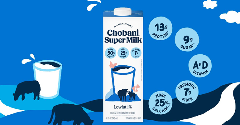
Chobani develops shelf-stable, prebiotic-enriched Super Milk
12 Sep 2024
Chobani has launched a prebiotic-enriched, shelf-stable, high-protein dairy milk to support people in disaster zones who need a nutritious drink that does not require refrigeration.
Read more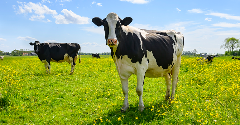
Tesco trials methane mitigation supplement for dairy cattle
5 Sep 2024
Tesco is trialing a methane-reducing feed supplement for one of its key UK dairy farms, sustainable UK milk producer Grosvenor Farms.
Read more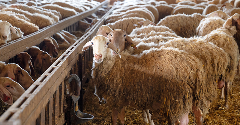
Sheep and goat plague: A new threat to Greece’s feta production
27 Aug 2024
A recent goat and sheep plague outbreak threatens feta production in Greece. The flagship product accounts for roughly 10% of the country’s food exports, but Greek authorities say there is no cause for concern.
Read more
Nestlé develops a new fat reduction method for dairy ingredients
26 Aug 2024
A Brazil-based Nestlé research and development team has developed a way to reduce the fat in milk powder by as much as 60%, without impacting the key characteristics that consumers enjoy.
Read more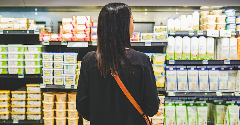
Dutch court rules against plant-based butter brand ‘Roombeter’: Only dairy products allowed to use the word ‘cream’
26 Jul 2024
A Dutch court has ruled against Upfield’s plant-based butter, Roombeter, stating that its use of the word ‘room’ (cream) in the product name violates European regulations that protect dairy-related terms allowed for dairy products only.
Read more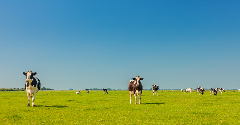
How will Denmark’s 2030 carbon tax impact farming?
12 Jul 2024
Denmark has announced plans to implement Europe’s first carbon tax on agriculture from 2030, targetting the farming sector’s CO2 emissions. How will it be implemented and how have farmers reacted?
Read more
Sweden updates front-of-pack Keyhole labelling rules
11 Jul 2024
The Swedish Food Agency has announced updates to the voluntary Keyhole logo, used in four Nordic countries, following recommendations to improve nutrition labelling.
Read more
Consumers dislike faba beans’ sensory profile
3 Jun 2024
Consumers display low acceptance of faba beans, with sensory properties such as bitterness a core concern, a study suggests. However, for product varieties such as cocoa-free chocolate, this attribute could prove to be a benefit.
Read more
Food scientists uncover new way to preserve nutrient and flavour quality
29 May 2024
Researchers have developed a method that guarantees food safety for low-moisture products, such as dried milk, while maximising quality by retaining vitamins, minerals, and flavours, they say.
Read more